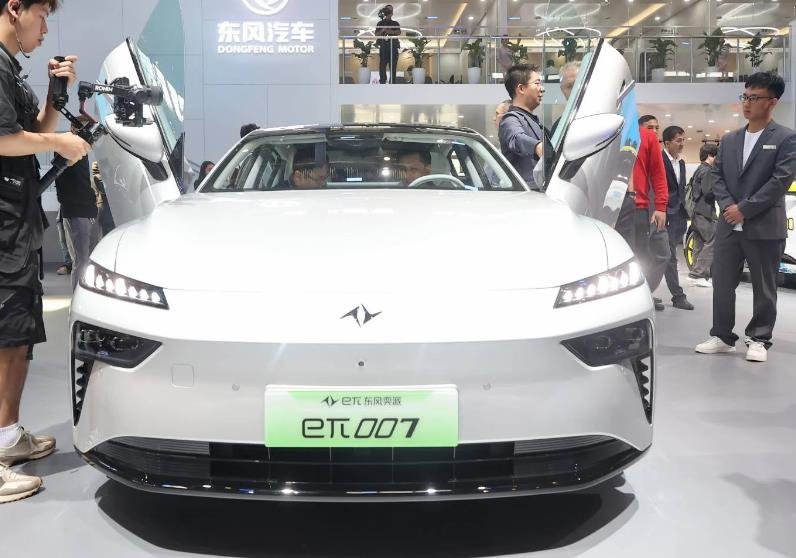September marked a significant upswing for Chinese automobile manufacturers, driven by the government’s robust trade-in programs and the traditional peak season for auto consumption. The implementation of these initiatives during the Golden Week holidays has not only spurred market demand but also showcased the resilience and innovation of domestic carmakers in a competitive landscape.
Government Trade-In Programs Drive Consumer Demand
The Chinese government’s durable consumer goods trade-in program has been instrumental in revitalizing the automotive market. By encouraging the replacement and renewal of older vehicles, the program has made it more affordable for consumers to upgrade to newer models, particularly electric vehicles (EVs).
- Policy Measures: 24 provinces and cities, including major hubs like Beijing, Shanghai, and Jiangsu, have rolled out policy measures to support the trade-in and renewal of older cars.
- Financial Incentives: These policies offer financial incentives, making it easier for consumers to switch to more efficient and environmentally friendly vehicles.
- Enhanced Accessibility: The programs have increased accessibility to the latest automotive technologies, fostering a more sustainable and modern vehicle fleet.
Wen Hua, an official from the National Development and Reform Commission, highlighted the widespread adoption of these policies, emphasizing their role in boosting both sales and consumer confidence during the holiday season.

Record-Breaking Sales Among Leading EV Manufacturers
Several leading Chinese EV manufacturers reported unprecedented sales figures in September, underscoring the effectiveness of government support and the growing consumer preference for electric mobility.
| Company | September Deliveries | Year-on-Year Growth |
|---|---|---|
| Li Auto | 53,709 units | 48.9% |
| Xpeng | 21,352 units | 39% |
| NIO | 20,349 units | 30.1% |
| Total Q3 Deliveries | 61,023 units (NIO) | – |
- Li Auto: Achieved a significant milestone with nearly 54,000 units delivered, marking a 48.9% increase compared to the previous year.
- Xpeng: Set a new sales record by delivering over 21,000 new cars, reflecting a 39% year-on-year growth.
- NIO: Continued its upward trajectory with over 20,000 vehicles delivered in September alone, a 30.1% increase year-on-year.
Zhang Xiang, Secretary General of the International Intelligent Vehicle Engineering Association, attributed this surge to the effective implementation of trade-in programs and the relentless innovation by these manufacturers.
Impact of Golden Week and Auto Shows on Market Dynamics
The Golden Week holidays traditionally serve as a peak season for automobile consumption in China. This year, the synergy between holiday festivities and strategic marketing efforts further amplified the sales performance of domestic carmakers.
Highlights from the Golden Week:
- Increased Foot Traffic: Car dealerships in Beijing and other major cities experienced significant crowds, with potential buyers actively engaging in test drives.
- Auto Shows: Nearly 20 cities hosted auto shows, with the Suzhou International Auto Show attracting over 250,000 visitors and generating sales surpassing 4 billion yuan ($566.3 million).
- Consumer Engagement: Interactive events and promotional activities during the holidays enhanced consumer engagement and brand loyalty.
These factors collectively contributed to a vibrant and competitive market environment, allowing carmakers to showcase their latest models and technological advancements to a broad audience.
Future Prospects: Sustaining Growth and Innovation
Looking ahead, Chinese carmakers are poised to maintain their growth trajectory by continuing to innovate and adapt to evolving market demands. The strong sales performance in September sets a positive precedent for the upcoming months and reinforces the strategic importance of government support in driving the automotive sector forward.
Key Strategies for Sustained Growth:
- Continued Innovation: Investing in cutting-edge technologies to enhance vehicle performance, safety, and sustainability.
- Market Expansion: Exploring new markets and expanding distribution networks to reach a wider consumer base.
- Sustainable Practices: Emphasizing environmentally friendly production processes and sustainable supply chains to align with global climate goals.
As the automotive industry navigates through dynamic market conditions, the collaboration between government policies and corporate strategies will remain crucial in ensuring long-term success and resilience.
















